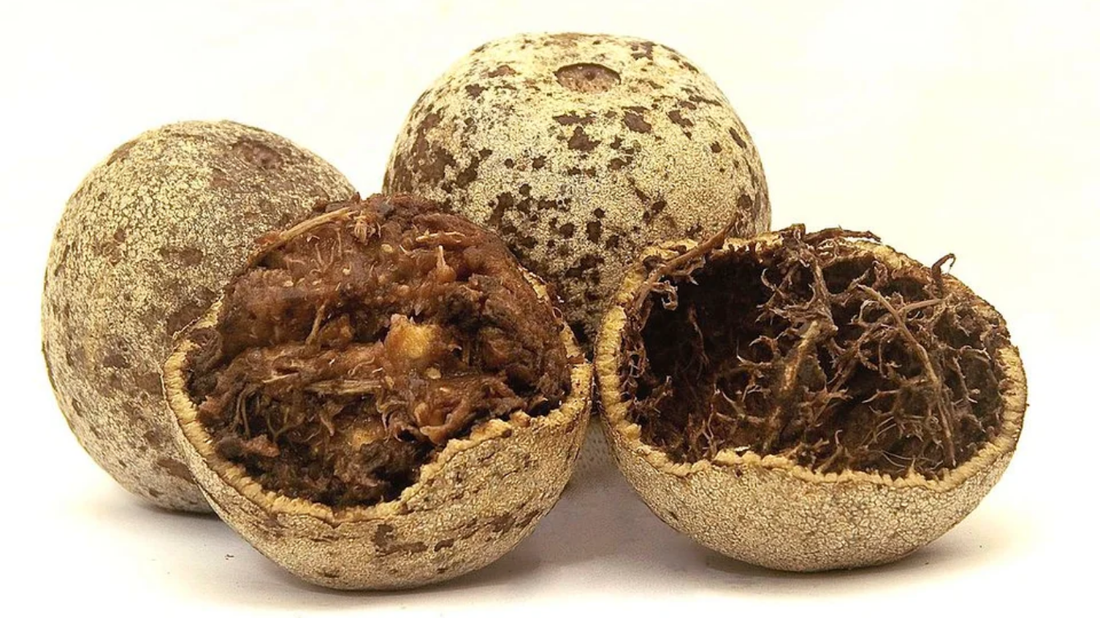
Sri Lankan Famous Fruits: Wood apple
Sri Lankan Famous Fruits: Wood apple
The wood apple is more than just a fruit; it is a symbol of Sri Lanka's rich biodiversity and culinary heritage. Its unique taste, nutritional benefits, and cultural significance make it a beloved fruit among locals and a curiosity for visitors. Whether enjoyed on its own or as part of a dish, wood apple offers a taste of Sri Lanka's tropical paradise.
What is Wood apple?
Wood apple, scientifically known as Limonia acidissima, is a tropical fruit native to the Indian subcontinent and Southeast Asia. In Sri Lanka, it is commonly referred to as "divul." The fruit is distinguished by its hard, woody shell, which encases a soft, brownish pulp with a distinct, pungent aroma.
Appearance and Taste
-
Shell:
The wood apple's exterior is rough and tough, resembling a small coconut. It is usually brown or Gray in colour. -
Pulp:
Inside, the fruit contains a sticky, fibrous pulp that ranges from dark brown to purple. This pulp is the edible part of the fruit. -
Flavour:
The taste of wood apple is an intriguing blend of sweet and sour with a hint of bitterness. It is often compared to tamarind or raisin but with a unique twist.
Nutritional Benefits
Wood apple is not only flavourful but also packed with nutrients. It is rich in vitamins, minerals, and antioxidants, making it a healthy addition to any diet.
-
Vitamin C:
Boosts the immune system and promotes healthy skin. -
Fiber:
Aids in digestion and helps maintain a healthy gut. -
Calcium and Phosphorus:
Essential for strong bones and teeth.
Culinary Uses
In Sri Lanka, wood apple is used in a variety of culinary applications:
-
Juice:
The pulp is often blended with water and sweeteners to create a refreshing drink. -
Chutneys and Jams:
The fruit's unique flavour makes it a popular ingredient in chutneys and jams, adding a tangy twist to traditional recipes. -
Desserts:
Wood apple is sometimes incorporated into ice creams and sweets, enhancing them with its distinctive taste.
Cultural Significance
Wood apple holds a special place in Sri Lankan culture. It is commonly used in traditional remedies and is believed to have medicinal properties. Additionally, the fruit is often associated with festivities and is a staple in many Sri Lankan households.
Traditional Remedies
Wood apple has long been used in Ayurvedic medicine, where it is valued for its potential health benefits. It is believed to aid in digestion, reduce inflammation, and even assist in detoxifying the body. Traditional healers often recommend wood apple for its cooling properties, which are said to help balance bodily heat during the hot, humid months.
Festive Celebrations
During the Sinhala and Tamil New Year, a major cultural event in Sri Lanka, wood apple becomes a key ingredient in many festive dishes. Its unique flavour is incorporated into sweet and Savory treats, symbolizing prosperity and the sweetness of life. Sharing wood apple-based dishes during these celebrations is a cherished tradition that strengthens community bonds.
Whether enjoyed for its health benefits, cultural significance, or simply its delightful taste, wood apple remains a beloved fruit that encapsulates the essence of Sri Lankan heritage.
